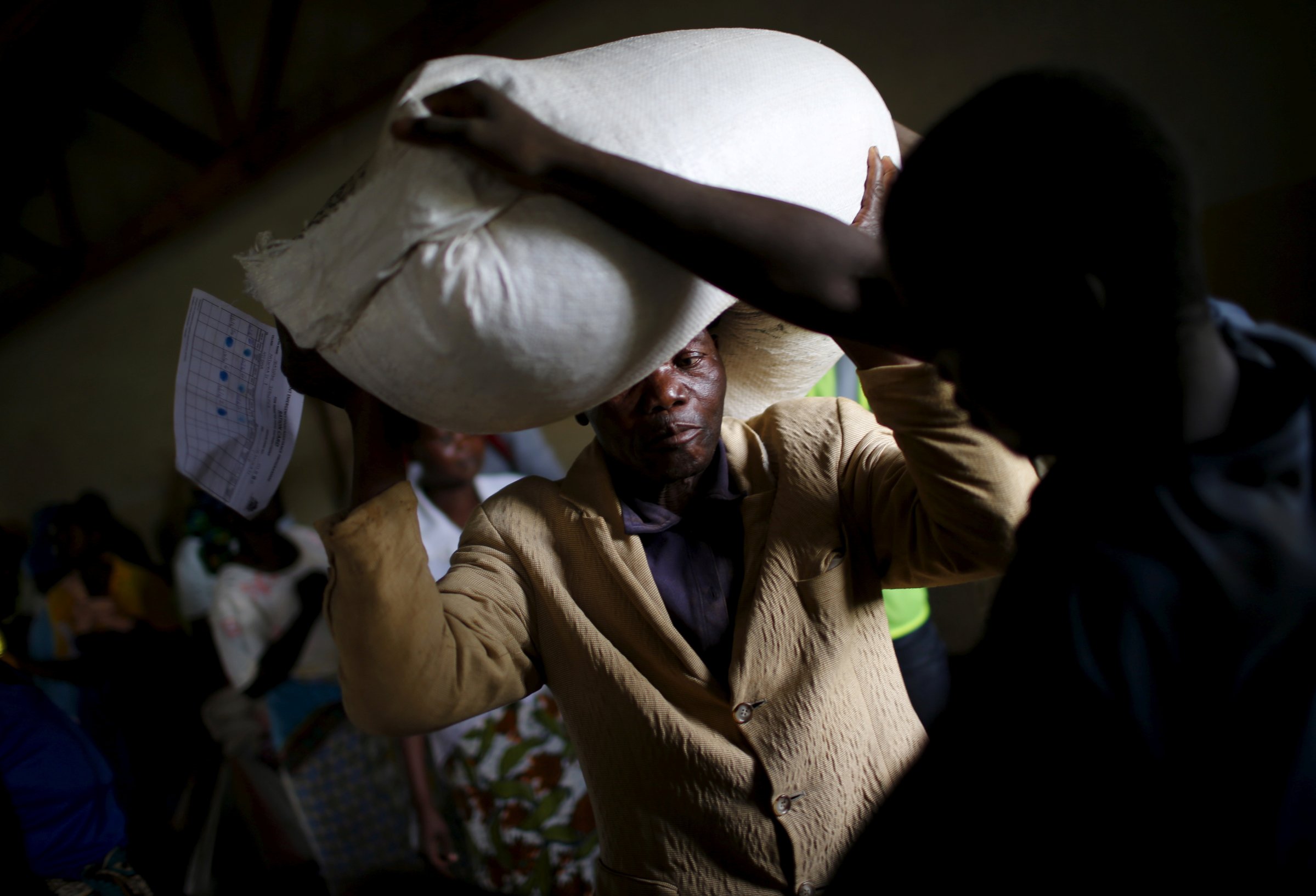
It has become fashionable to suggest that foreign aid is becoming obsolete in our modern era. But as world leaders gather in New York City for the U.N. General Assembly over the next coming week, they must remember that aid is crucial to putting us on a path to achieve the Sustainable Development Goals they agreed on a year ago. America’s leaders must also remember that aid is also one of the most important tools the U.S. has to defend our values and prevent the emergence of threats.
A glance at the international pages of our major newspapers paints a bleak picture for many Americans. Conflict and poverty have sent the highest number of people fleeing across borders since World War II. In many countries, the democratic promise of the Arab Spring and color revolutions have given way to war, chaos or authoritarianism. As people flee danger and deprivation, they are willing to take desperate chances with their lives to reach Europe and America. Foreign aid is vital in order to provide some relief to this massive movement of refugees.
Aid has also helped fuel the overall progress in the fight against poverty. Over the past few decades, poverty has declined further and faster than at any time in human history. Since 1990, more than one billion people have escaped extreme poverty, and are now able to help their families achieve basic human needs like food, housing, health and education. Diseases like polio, HIV/AIDS and malaria are in retreat. And the proportion of undernourished people has fallen by half.
While aid did not accomplish all of this—people and countries did—it has certainly meant that more people have been able to make more progress faster.
Unprecedented economic growth in a number of developing countries, attributed in great part to an increase in access to technology, has created new opportunities for people around the world. As a consequence, there are now more resources available to fund development than ever before. The growth of domestic resources of developing countries and international commercial and private finance mean that aid is now a smaller share in relative volume of the total funds available for development worldwide.
Some say this means aid is obsolete. This is nonsense; for the poorest people and countries, aid is as relevant as ever. Other resources such as private finance and tax revenue are large when measured globally. But they are distributed very unevenly, favoring countries and areas that are already making the most development progress. Left behind are those countries with the biggest challenges, that cannot raise enough tax revenue or attract enough private investment. Also left behind are people in high-growth countries who have been shut out of progress—often because wealthy elites have actively excluded them.
Aid is unlike other financial flows; it is a tool of public policy. It has the potential to drive the development agenda and focus on the problems of the poorest. It has a potential impact far beyond its scale in absolute dollars.
Aid is not the ultimate driver of development progress; rather, that driver is the functioning development compact between active citizens and effective, accountable governments. The relationship between poor, unaccountable governance and extreme poverty is arguably the biggest obstacle to eradicating extreme poverty.
Aid cannot forge this compact between citizens and their government. But the way donors deliver aid can strengthen or weaken that compact. At its best, aid can help strengthen the citizen-state compact by helping to improve public accountability. It can promote an enabling environment for civil society, complementing government spending on much-needed public goods, and supporting strong domestic efforts (on the part of civil society and citizens) to hold governments accountable.
Too often in the past, aid has been used to work around the challenges of governance. In order to make sure that everyone can escape extreme poverty, we need a new approach to aid that actually puts poor countries and people in the lead to solve their own challenges.
In this new vision, aid helps countries mobilize and sustain financing for their own development priorities, strengthen governments’ ability to deliver the development results their citizens demand, help citizens demand the investments and outcomes they need, and deliver outcomes that last over time.
By rethinking aid in this way, we can help support the citizens and governments to build the inclusive, just societies they want and deserve. The U.S. cannot do this for them. But we can help them to be more successful, faster.
The poorest people and countries are not waiting for us. They are working to catch up, and seeking partners to help them do so. The question for the U.S. is whether we are willing to be the partner that they need to end extreme poverty and build just, prosperous and inclusive societies.
More Must-Reads from TIME
- Cybersecurity Experts Are Sounding the Alarm on DOGE
- Meet the 2025 Women of the Year
- The Harsh Truth About Disability Inclusion
- Why Do More Young Adults Have Cancer?
- Colman Domingo Leads With Radical Love
- How to Get Better at Doing Things Alone
- Michelle Zauner Stares Down the Darkness
Contact us at letters@time.com